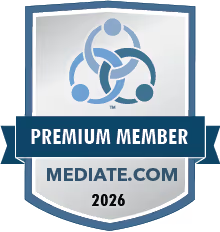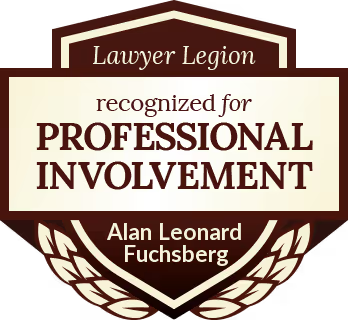Your Trusted Dangerous Drugs Attorneys in NYC

Doctors prescribe medications and drugs to their patients to help reduce pain as well as the symptoms of chronic conditions. For example, people with diabetes may take a prescription drug to keep their blood sugar at a normal level while someone who had been in a car accident may take medication until the physical pain subsides.
Unfortunately, some drugs can cause such severe side effects that the patient’s condition gets worse instead of better. Other times that drugs cause harm is when one drug has a negative interaction with another drug the patient already takes or when a doctor prescribes it for off-label purposes. Off-label means that the Food and Drug Administration (FDA) has approved the drug but not to treat the patient’s specific condition.
You are entitled to seek financial compensation if you or a close family member have sustained an injury due to a prescription drug by hiring a dangerous drugs attorney. You may also have a valid wrongful death claim if a family member passed away due to a dangerous prescription drug.
We’re here with you, in whatever situation you face. With decades of experience representing people just like you, we understand and will support you with all of our legal resources. Contact us today for a free consultation.
Speak to a Dangerous Drugs Lawyer Today
Based in Manhattan, the Jacob Fuchsberg Law Firm serves individuals and families of those injured in all five boroughs of New York City, and throughout the tri-state area of New York, New Jersey, and Connecticut. Contact us any time for a free consultation if you or a loved one has been injured. We are here to help, please call us today and we’ll do whatever we can to help you 212-869-3500.
Schedule a Free ConsultationDangers of Harmful Drugs
According to the FDA, it receives approximately four million complaints about dangerous drugs every year. Of these complaints, 117,000 people had to be hospitalized due to the effects of a bad drug. When you retain a drug injury lawyer, your lawsuit could go against the prescribing doctor, the drug manufacturer, a healthcare practitioner who gave you the wrong dosage of a drug, or a pharmacist who confused your prescription with that of another patient. These errors are negligence that should have been avoided. When you use a drug exactly as it is prescribed, you should never suffer a serious or even life-threatening reaction.
How Harmful Drugs Can Cause an Injury
Drug manufacturers are responsible for testing a new drug multiple times and obtaining clearance from the FDA before releasing the product for public use. When applying for FDA approval, the manufacturer must provide proof of clinical testing and drug trials. The FDA reviews this information carefully as part of the approval process.
Healthcare consumers understand that nearly every drug has side effects. The FDA will likely approve a drug if it feels that it provides more benefit than harm. However, it is up to the drug manufacturer to disclose all potential issues that could arise from taking the drug to allow people to make an informed decision about its benefits vs. risks. Some manufacturers fail in this regard or the FDA releases a drug before enough studies have been conducted to determine its actual degree of risk.
Serious Problems that Result in Dangerous Drugs
The current system of drug manufacturing and approval has several gaps that allow dangerous products to get into the hands of healthcare consumers. The 501(k) approval process by the FDA is one such loophole. This program allows fast-track approval for medical devices if a similar approved product is already on the market. This fails to consider that some approved products could be dangerous even though the FDA has not yet ordered an involuntary recall. Some products associated with large class action lawsuits, including the transvaginal mesh and metal-on-metal hip replacement products, gained initial FDA approval through this loophole.
Gaps in regulation can also lead to dangerous drugs and devices in the medical marketplace. Compounding pharmacies, which originally sprang up to mix drug ingredients to create a product for a patient for whom no other drug was available, are the perfect example of harmful regulatory gaps. Small, local prescription drug authorities regulate compounding pharmacies and not the FDA. Compounding pharmacies grew over time, producing drugs in mass quantities to deal with rising drug costs as well as shortages. Because the FDA had no authority to stop them, the result was a meningitis outbreak that killed 50 and left more than 700 seriously ill.
Drug representatives eager to make a sale may not disclose all potential side effects to a doctor. The doctor trusts the recommendation and prescribes the medication to patients without fully understanding its potential for harm. Sales representatives for drug companies may also persuade doctors to prescribe certain drugs for off-label purposes. Gabapentin is a primary example of this. The drug, originally manufactured and approved for the control of seizures, is now prescribed to patients for a host of other ailments.
Some drug manufacturers will rush through the testing phase to get the product to market as quickly as possible. This is an ineffective approach because some drugs require long-term safety testing as side effects are not always immediate.
What Types of Drugs Are Considered Dangerous?
Any type of drug or medical device has the potential to become the subject of a bad drug lawsuit. It has been our experience that people seek the assistance of a drug attorney most often for these types of products:
- Birth control pills: Some birth control manufacturers fail to warn women of potentially serious side effects such as blood clots, heart attack, pulmonary embolism, and stroke. The manufacturer Yaz recently found itself in legal trouble when the FDA ruled it had exaggerated the benefits and minimized the risks, particularly in television commercials.
- Defective hip implants: Needing to have a hip replaced is painful enough, but some patients suffered, even more, when they received a defective hip implant that failed. In addition to pain, dislocation, and loosening of the device, some people have required a second revision surgery to correct the mistakes of the first procedure.
- Dietary supplements: Unlike the other drugs and medical devices listed here, dietary supplements do not require FDA approval before selling to consumers. They undergo a much less stringent approval process under the Dietary Supplement Health and Education Act (DSHEA). The manufacturers alone determine which ingredients to include in the supplement. Although the DSHEA dictates the information to include on dietary supplement labels, some are deliberately misleading to healthcare consumers. Serious adverse effects associated with dietary supplements include damage to the kidneys, liver, and heart.
- Hormone replacement therapy: Targeted toward women to help control the discomfort of menopause, hormone replacement therapy containing estrogen alone, progestin alone, a combination of these two hormones, or estrogen combined with other medications can cause serious health complications. Some of these include blood clots, breast cancer, heart attack, gallbladder disease, and stroke.
- Non-steroidal anti-inflammatory drugs (NSAID): These include both prescription and over-the-counter drugs primarily used to treat pain and inflammation. Often taken in the form of aspirin or ibuprofen, some of the most serious effects of NSAIDs include liver failure, kidney failure, and ulcers.
- Osteoporosis medication: Osteoporosis causes the bones of its sufferers to become brittle and easily prone to breaking. Fosamax, a prescription drug used to control the symptoms of osteoporosis, can cause pain in the esophagus, bones, joints, and muscles as well as thigh bone fractures and severe jaw dislocation.
- Prescription painkillers: Severe and ongoing pain often requires a stronger painkiller than what is available at the drugstore. Some manufacturers, such as Vioxx, downplayed the risk of serious heart complications and have paid millions of dollars in damages as a result.
- Zinbryta lawsuit: If you or someone you know have experienced critical health problems after taking Zinbryta (Daclizumab), we urge you to consider litigation.
- Elmiron (pentosan polysulfate sodium): This medication, used to treat interstitial cystitis, has been linked to vision problems, including a unique type of maculopathy. Long-term use of Elmiron has been associated with pigmentary changes in the retina, which can lead to vision loss.
If you have been asking yourself what is dangerous drugs, it is likely that you or a loved one have suffered due to the negligent actions of someone in the medical or manufacturing fields. Your options include working with a dangerous drug attorney to file an individual lawsuit or joining a class-action lawsuit. In the latter case, you would join a plaintiff’s action with hundreds or thousands of other people injured by the same drug or device and split the winning proceeds.
A successful lawsuit against a doctor, pharmacist, drug manufacturer, or other responsible parties will provide you with the funds you need to pay medical expenses and reimburse you for lost wages. It could also provide you with subjective damages such as pain and suffering.
Injuries from Unsafe Medicine
We help people who have been harmed as a result of unsafe drugs. We handle cases involving injuries from many different drugs, such as:
DPP-4 Inhibitors, Including Januvia, Tradjenta, and Alogliptin
DPP-4 inhibitors — or dipeptidyl peptidase-4 inhibitors — are used in patients with Type II diabetes. Concerning symptoms include severe and persistent joint pain, which may arise anywhere from 1 day to 1 year after beginning treatment.
SGLT2 Inhibitors, Including Invokana, Invokamet, Forxiga, Jardiance, and Empagliflozin.
SGLT2 inhibitors are used in patients with Type II diabetes.
Possible adverse events include:
- Ketoacidosis
- Bone fractures, especially in hips and spine and particularly in elderly patients (can be triggered by minor falls)
- Significant lowering of bone density
- Urinary tract infections (UTIs)
Hepatitis C Drugs, Including Viekira Pak, Technivie, and Harvoni/Sovaldi
Several drugs used to treat different types of Hep C have been associated with potential adverse risks, including:
- Viekira Pak, used to treat genotype 1 HCV, associated with cases of liver failure leading to liver transplantation or death
- Technivie, used to treat genotype 4 HCV, may pose a similar risk of liver failure
- Harvoni/Sovaldi, patients on anti-arrhythmia drugs may experience severe heart rate reduction
Other Potentially Dangerous Drugs
We also handle cases involving injuries from many other drugs, including:
- Pradaxa
- Topamax
- Antidepressants, including Celexa, Lexapro, Paxil, Prozac, Zoloft, Wellbutrin, and Effexor
- Propecia
- Actos
- Fosamax

.svg)


.svg)
.svg)















.svg)
.svg)

.svg)
.svg)




.avif)


